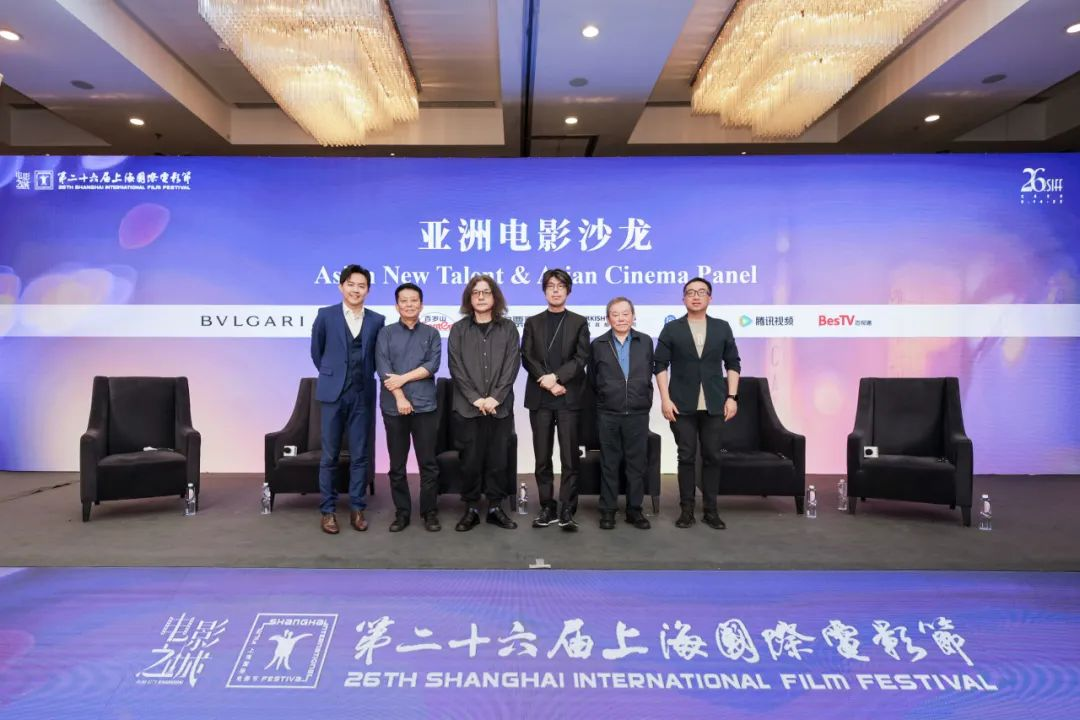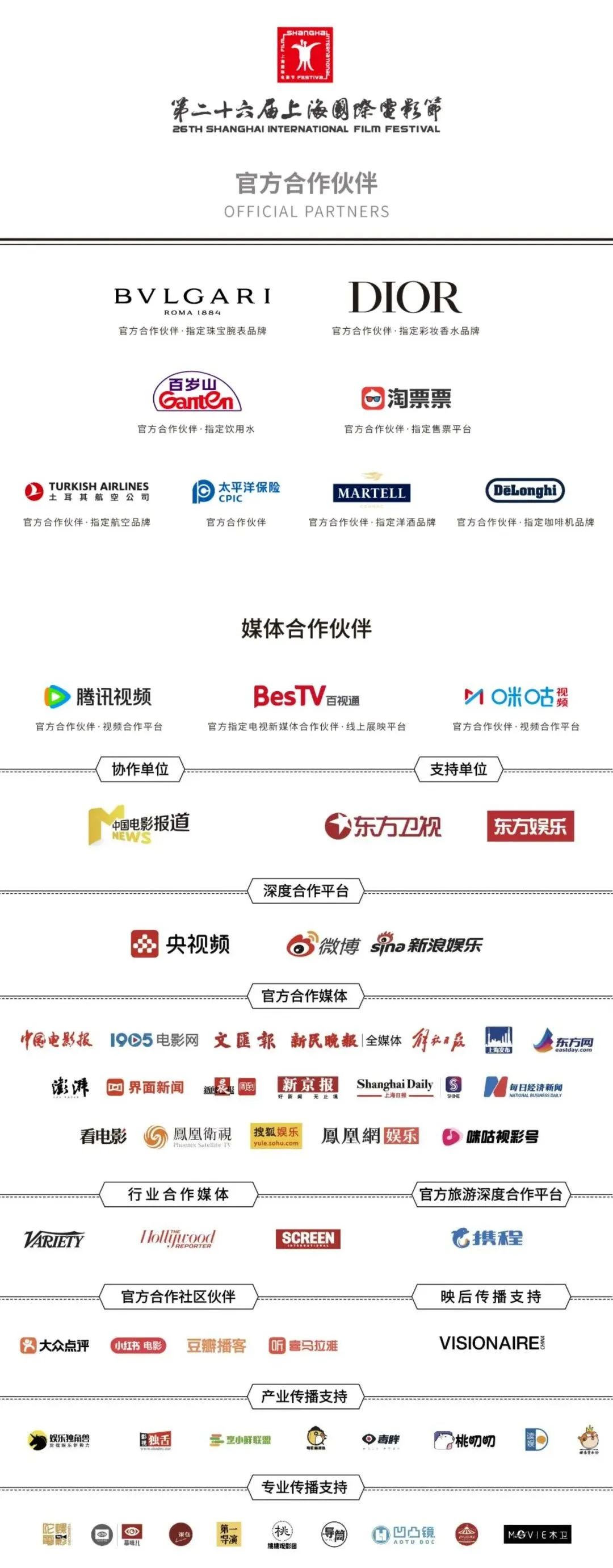SIFFORUM | Sparkling Lights of Asia's Cinema Future
This year marks the 20th anniversary of the SIFF Asian New Talent Award. On June 19, the 26th Shanghai International Film Festival's SIFFORUM—Asian New Talent & Asian Cinema Panel—hosted two roundtable talks, highlighting the inspiring stories of mutual growth between the Asian New Talent section of Golden Goblet Awards and emerging filmmakers across Asia. The first roundtable, titled "Asian New Talent · Growing Together", gathered former judges, past winners, and finalists of the Asian New Talent Award to reflect on its development and discuss the significant role SIFF has played in nurturing new talent in Asian cinema. The second roundtable, titled "Asian Cinema New Wave", brought together filmmakers from various Asian countries and regions to discuss the creation of Asian cinema, fostering exchanges and cooperation within the industry.
Roundtable 1
Asian New Talent · Growing Together


Reza Dormishian
Director, Screenwriter
Ten years ago, my film I'M NOT ANGRY! won the Best Film and Best Director awards here. It was an unforgettable and wonderful experience for me. Following that, I took this film to seven film festivals around the world. More importantly, the Asian New Talent Award encouraged me to keep creating new works. With the prize money, I made my next film, which also won awards at other festivals... Today, I want to share my feelings about the Shanghai International Film Festival. Although ten years have passed, I still clearly remember that after my film screening, the host asked the audience if they had any questions, and every audience member raised their hand. This was something I had never seen at any other film festival. Every audience member had thoughts and questions; I believe this unique enthusiasm is a hallmark of the SIFF audience.

Li Xiaofeng
Director, Screenwriter, Producer
First, I want to express my gratitude to SIFF PROJECT. Back then, I adapted the novel NEZHA into a screenplay and submitted it to SIFF PROJECT. I wasn't very young at the time, already 34 or 35. In 2013, it turned out that I won an award from that project and received 100,000 RMB. This amount may seem small, but it was crucial. First, it helped me establish myself in the industry since the first money I used came from the film festival, which holds a special significance. Then in 2014, I brought the rough cut of my film here, to the same place as today, for many people to see. In 2015, I was nominated for the Best Script Writer in the Asian New Talent category. I am always grateful to the Shanghai International Film Festival. It feels like as I have grown, so have the festival; it’s amazing that we have grown together.

Liu Juan
Director, Screenwriter
My first film, SINGING WHEN WE ARE YOUNG, was a youth film. At that time, youth films weren't a particularly popular genre in the Chinese market. I completed it with a very anxious heart. I thought I would be content just to get it into theaters. Then the producer told me we were shortlisted for the Asian New Talent Award. I was thrilled but never expected to win. This experience solidified one thing for me: no matter how difficult the filmmaking process is, if the work is good enough, it will receive fair treatment. I'm someone who doesn't usually use social media, but a few days ago, because of this forum, I checked my Weibo again and found many messages from viewers asking where they could watch SINGING WHEN WE ARE YOUNG and encouraging me to keep creating. For a young film director, the push from the Asian New Talent Award is so strong and long-lasting.

Shen Yang
Independent Producer
More than 20 years ago, the threshold for entering the film industry was very high. Filmmakers like Li Xiaofeng and Liu Juan were shooting films while seeking financing. Creators who managed to complete their works were already considered very fortunate. Back then, most young filmmakers did not have such financial support, and our film festival had to select the best films amid many practical challenges. However, our industry has always been proactive in nurturing new talent. When we invited director Shunji Iwai to be the jury president, he agreed without hesitation. Similarly, our first jury member, director Huang Shuqin, was very supportive. The enthusiasm and support from these veterans gave us the confidence to pursue this endeavor. I always say that newcomers are the lifeblood of any industry. Whether it's aesthetic innovation or industrial transformation, it is always driven by new talent. We hope that on this platform, more newcomers can boldly express themselves, break existing rules, and push the industry forward.
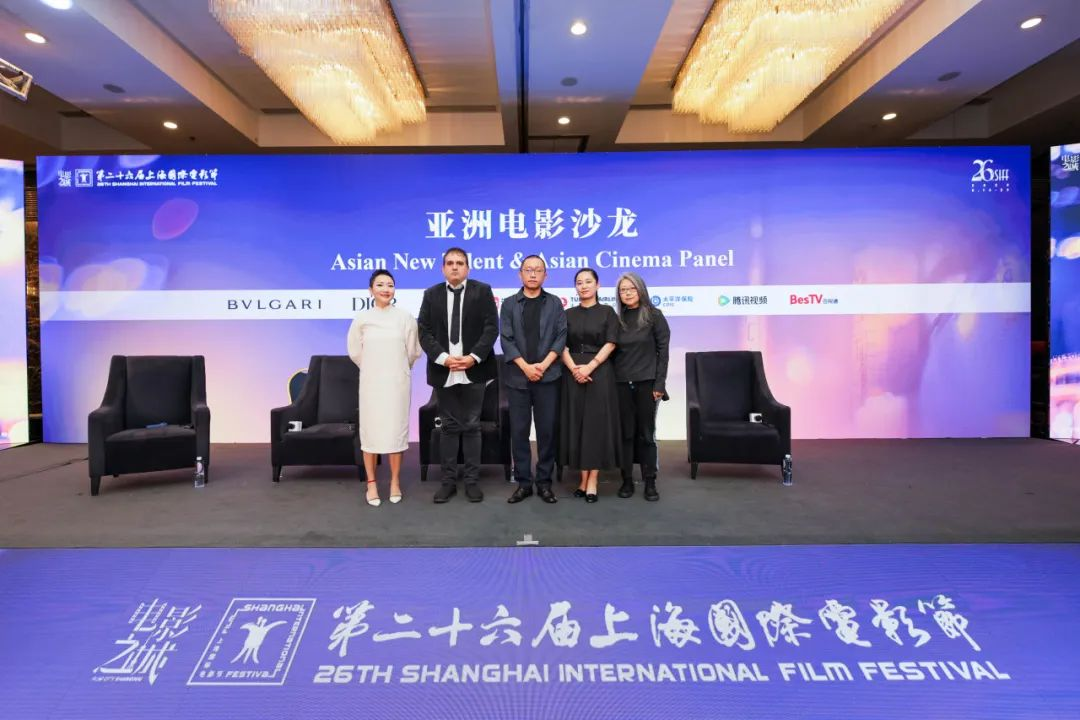
Roundtable 2
New Wave of Asian Cinema
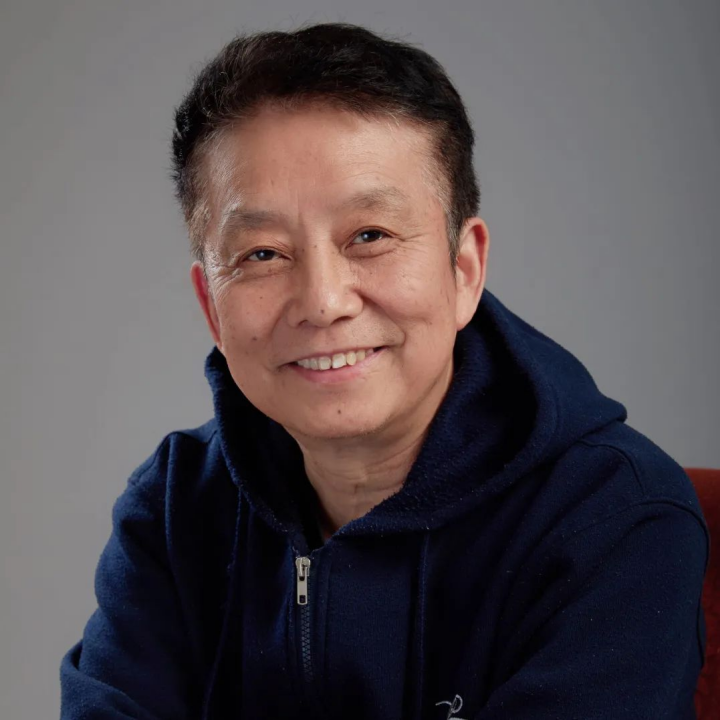
Huang Jianxin
Director, Screenwriter, Producer
Film is a generational endeavor, not an individual pursuit. The significance of the Asian New Talent section lies in fostering a collective force among a new generation of filmmakers. Established directors, whether middle-aged or senior, represent the past and present, while young directors embody the present and future. Each generation has its unique responsibilities. I believe that young directors in Asia will rapidly mature, as the cost of growth has decreased. Nowadays, with the advent of AI, anyone can potentially become a director. In a state of technological equality, the emergence of young directors is inevitable. From a "pan-cultural" perspective, we might see the appearance of hundreds of thousands, or even millions, of new directors. In a scenario where "pan-directors" emerge, the key question becomes how to improve the quality of films and how to showcase the professionalism and influence of these new filmmakers in their works. This is the challenge that the Asian New Talent section aims to address and resolve.
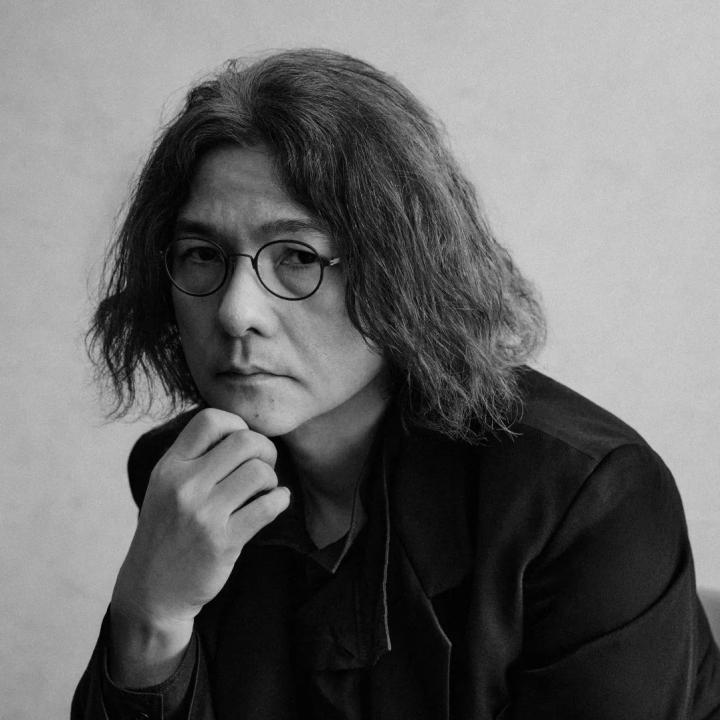
Shunji Iwai
Director, Screenwriter
In Asia, many filmmakers are now engaging in co-production. I have also collaborated with China on the film LAST LETTER, and encountered no obstacles. I believe that in co-production, there’s no need to overly focus on what the other party is doing. Each country has its direction for local development, so there’s no need to force oneself to look at overseas works. Just like in Japan, I mostly watch Japanese video platforms and focus on content that interests us. In co-productions, I think the presence of stars is very important. Every country has its stars, and we should create opportunities for these stars to shine internationally. Historically, Hollywood films succeeded because they had popular stars who made it easier for other countries to accept Hollywood movies. We need to act as catalysts in helping these stars impact foreign markets.
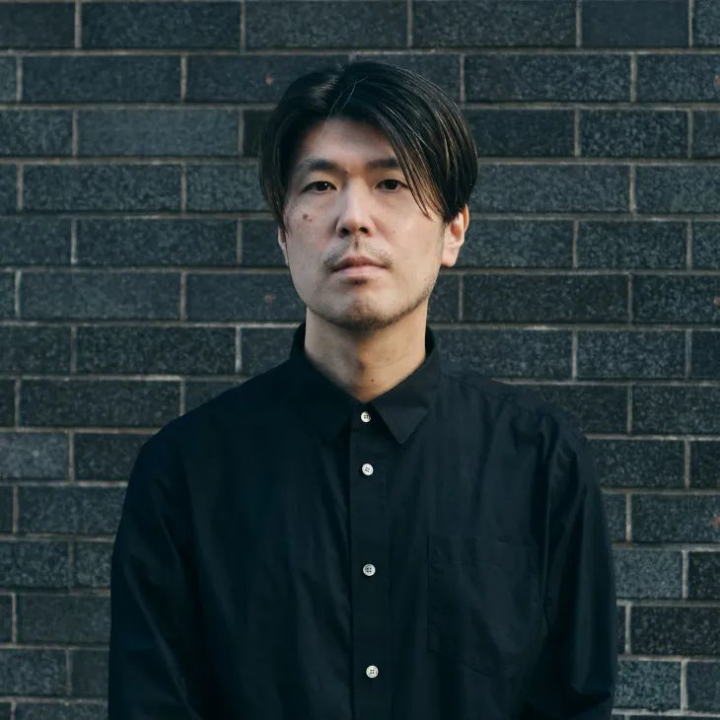
Genki Kawamura
Producer, Director, Screenwriter, Author
A story transcends technology and serves as a medium to communicate with the world. For a new director, the ability to write stories is perhaps more crucial and something they must confront. My films are based on my novels, and turning an original story into a film is a challenging process for me. I need to share my vision with every member of the team and bring them into my conceptual world. In this process, people’s perceptions may vary, leading to different interpretations, but sometimes these interpretations exceed my expectations. I believe the concept of "Asian Cinema" can be a direction worth exploring. Recently, I visited a Chinese colleague who is making a film with a strong visual impact, reminiscent of Japanese animation. If we can collaborate with Chinese teams, we don’t need to distinguish whether it’s a Chinese or Japanese production. It can simply be considered an Asian film. I hope to see more films like this in the future.

Bill Kong
President, Edko Films Ltd.
Most young directors I encounter are incredibly diligent, often spending at least three to four years isolating themselves to perfect their scripts. When I talk to them, they’ve already thought through every question thoroughly. I believe their success is largely due to their own efforts. I encourage aspiring directors to ask themselves one crucial question: “How much effort am I willing to invest in this script?” The more you invest, the higher your chances of success. A successful film is often deeply connected to the director and screenwriter, reflecting what moves them the most through detailed and captivating storytelling. For new directors, I advise not to be swayed too much by investors’ suggestions. Stay true to what you genuinely want to create—that’s essential.

Li Jie
President, Alibaba Pictures
Today, Asian cinema stands at a crossroads. Our goal is to transform from a Chinese film company into an Asian film company. To achieve this vision, at least 30% of the films we produce, invest in, and distribute in the future should come from various Asian markets. We have always focused on new directors, especially those with international backgrounds. Two years ago, we launched the “Global Young Directors Development Program.” Through this initiative, we seek young directors worldwide who have international professional education and perspectives. Their educational background, global vision, and language skills are fundamental to making Chinese films that resonate globally. We believe these directors could be the backbone of Chinese cinema’s global journey over the next decade. Through the Asian New Talent unit and various film festivals' project ventures, we aim to provide opportunities and platforms for emerging directors.
